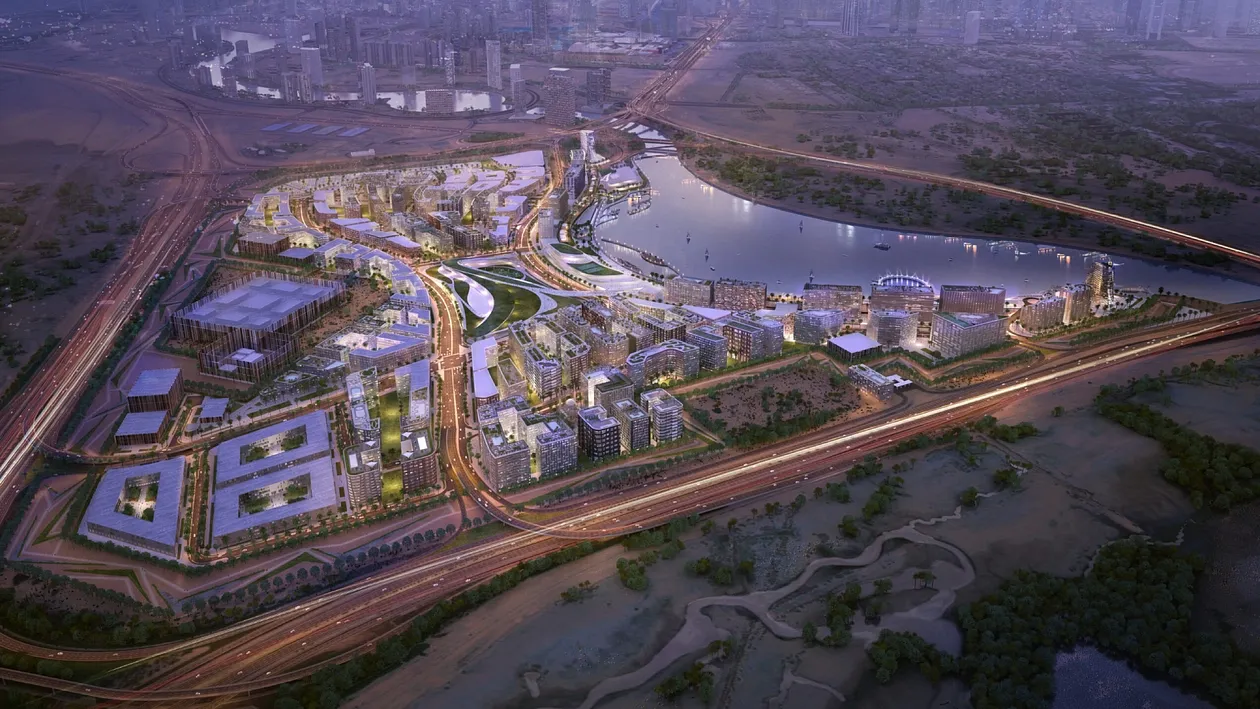Signature Collection
Explore SignatureThe Dubai Land Department (DLD) is set to launch a new rental index for commercial properties in the first quarter of 2025. This move follows the successful rollout of the smart rental index for residential properties, which was introduced earlier this year. The initiative aims to bring greater transparency, fairness, and accuracy to Dubai’s commercial rental market, which has been experiencing rapid growth due to strong economic conditions and an influx of foreign businesses.
How Will the Commercial Rental Index Work?
Majid Al Marri, CEO of the Real Estate Registration Sector at DLD, confirmed the expansion of the real estate rental index to include commercial properties. The upcoming index will likely follow the same methodology as the residential smart rental index, which utilizes artificial intelligence (AI) technology to classify properties based on factors such as:
- Building classification (age and condition)
- Old and new tenancy contracts within the building
- Market rental trends in the area
The new approach will provide a more accurate and fair valuation of rental prices across Dubai’s commercial property market.
Like residential properties, commercial property owners would have to upgrade their assets to qualify for rental increases. The index will also likely categorize commercial properties into a five-star rating system.
Similar to Dubai, Abu Dhabi introduced its new rental index in 2024, which is all set to be expanded to include commercial properties.
Key Market Trends Ahead of the Commercial Rental Index Rollout
Dubai’s commercial rental market is experiencing rapid changes ahead of the rental index rollout. Here are some of the key trends noticed so far.
Landlords Raising Rents in Prime Locations
Landlords are increasing rental prices in high-demand areas to lock in higher benchmarks before the index comes into effect. This is particularly evident in Grade A office spaces, where demand has outstripped supply.

Tenants Are Adopting New Cost-Saving Strategies
With commercial rents rising, businesses are reassessing their leasing strategies to manage expenses effectively. Some of the key trends among tenants include:
- Relocating to more affordable areas outside prime business districts.
- Downsizing office spaces or shifting to co-working setups to reduce costs.
- Renegotiating leases early to secure long-term agreements and lock in current rental rates.
- Requesting flexible payment terms to improve cash flow.
Demand Surge for Grade A Office Spaces
This trend underscores the rising demand for premium, high-quality office spaces, driven by multinational corporations and regional firms expanding their footprint in Dubai. Occupancy rates for Grade A offices have reached unprecedented levels, with key business hubs such as DIFC, Downtown Dubai, Business Bay, and Sheikh Zayed Road reporting over 95% occupancy.
In response to this strong demand, several off-plan commercial projects have been launched, primarily featuring Grade A office spaces, including notable developments like The One by Prestige One, Capital One, and others.
We eagerly anticipate the impact this index will have on rental benchmarks, investment opportunities, and business growth in Dubai once it is launched. Stay tuned with Provident Estate for the latest updates and expert insights into how these changes will shape the future of Dubai’s commercial property market!
FAQs
The rental yield of commercial properties in Dubai typically ranges between 6% and 10%, depending on factors such as location, property type, tenant demand, and lease agreements. Prime areas like DIFC, Downtown Dubai, Business Bay, and Sheikh Zayed Road tend to offer higher yields, especially for Grade A office spaces, which remain in high demand.
Dubai’s new rental laws aim to regulate rental increases and disputes, ensuring a fair and transparent rental market. Key aspects of the latest regulations include:
- RERA Rental Index: Landlords can only increase rent based on the official Rental Index Calculator set by the Dubai Land Department.
- 90-day notice rule: Landlords must provide a 90-day notice before increasing rent or making changes to lease terms.
- Eviction laws: Tenants can only be evicted for specific legal reasons, such as major property renovations or personal use by the landlord, with a 12-month notice period.
- Cap on rental increases: The maximum allowable rent increase depends on how far the current rent is from the market rate, based on the RERA Rental Index.
The return on investment (ROI) for commercial properties in Dubai typically ranges between 7% and 12%, with some prime locations offering even higher returns. Key factors influencing ROI include:
- Location: Business hubs like DIFC, Downtown Dubai, and Sheikh Zayed Road offer higher rental demand and appreciation potential.
- Tenant stability: Long-term lease agreements with corporate clients provide stable cash flow.
- Market conditions: With Dubai’s commercial real estate market experiencing strong demand and limited supply, investors are seeing higher returns.
For more information, get in touch with us at Provident







